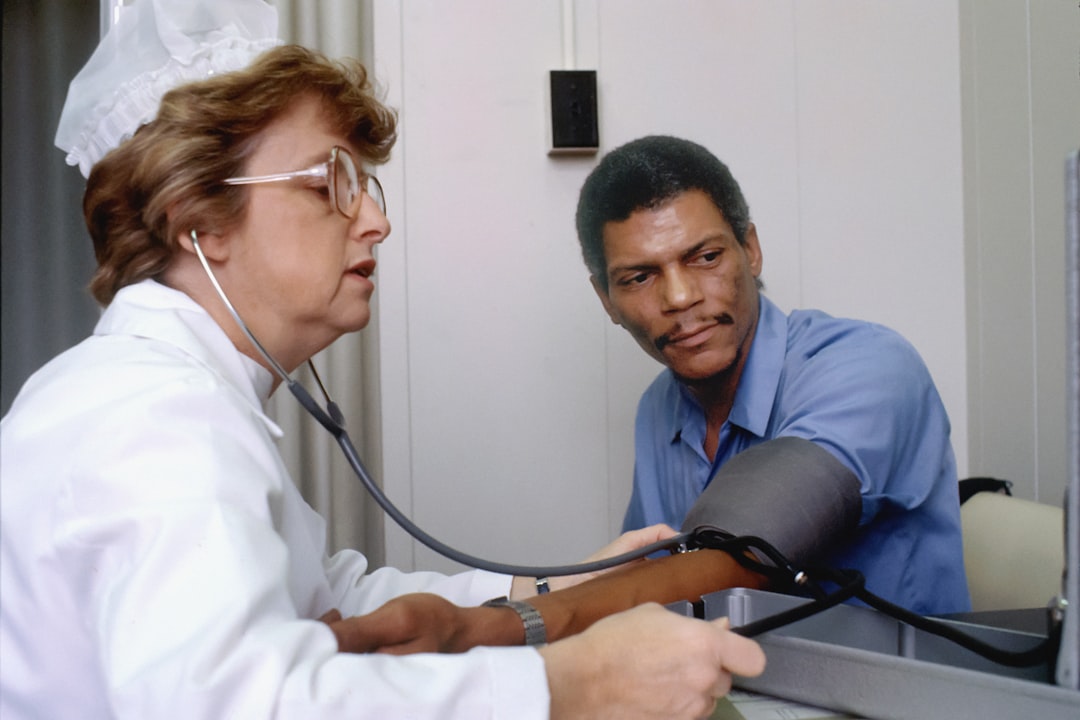High cholesterol
Discover the causes, symptoms, and treatments for high cholesterol. Learn how to manage and reduce your cholesterol levels for better heart health.
Related Products
High Cholesterol: A Silent but Serious Health Concern
High cholesterol is a prevalent health issue affecting millions worldwide. This condition, characterized by excessive cholesterol levels in the blood, has been extensively researched due to its potential to lead to serious cardiovascular complications.
Understanding Cholesterol
Cholesterol, a waxy substance produced by the liver and obtained from certain foods, plays a crucial role in various bodily functions. It's essential for:
- Building cell membranes
- Producing hormones
- Aiding fat digestion
However, when cholesterol levels become too high, it can pose serious health risks.
Types of Cholesterol
- Low-density lipoprotein (LDL) cholesterol: Often called "bad" cholesterol, it can accumulate in arteries, leading to atherosclerosis.
- High-density lipoprotein (HDL) cholesterol: Known as "good" cholesterol, it helps remove excess cholesterol from the bloodstream.
- Triglycerides: Another type of blood fat that contributes to overall cholesterol levels.
Diagnosis and Screening
High cholesterol diagnosis typically involves a blood test called a lipid panel. This test measures:
- Total cholesterol
- LDL cholesterol
- HDL cholesterol
- Triglycerides
Regular screening is crucial, especially for individuals over 40 or those with heart disease risk factors.
The Silent Nature of High Cholesterol
Unlike many other health conditions, high cholesterol usually doesn't present noticeable symptoms. This lack of apparent signs makes regular check-ups and blood tests particularly important for early detection and management.
Impact on Cardiovascular Health
Excess cholesterol can lead to plaque formation in the arteries, a condition known as atherosclerosis. This arterial narrowing can restrict blood flow to vital organs, potentially resulting in:
- Heart attacks
- Strokes
- Peripheral artery disease
Recent Research and Insights
Recent studies have challenged traditional notions about cholesterol's role in heart health. Some research suggests that very high HDL cholesterol levels may not necessarily translate to better heart health, indicating a more complex relationship between cholesterol types and cardiovascular risk.
Advancements in Treatment
- Statins: Remain a cornerstone of cholesterol-lowering therapy.
- PCSK9 inhibitors: Newer medications showing promise in managing difficult high cholesterol cases.
- siRNA therapy: An innovative approach using small interfering RNA molecules to target and reduce the production of specific proteins involved in cholesterol metabolism.
Managing High Cholesterol
A multifaceted approach is often required, including:
- Medication
- Balanced diet
- Regular exercise
- Weight management
- Smoking cessation
Conclusion
High cholesterol remains a significant health concern with potentially serious consequences. However, with ongoing research, improved understanding, and advances in treatment options, managing this condition has become increasingly effective. Regular screening, adherence to medical advice, and maintaining a healthy lifestyle are key components in the fight against high cholesterol and its associated risks.
References
- Mayo Clinic. (2023). High cholesterol - Symptoms and causes. Retrieved from https://www.mayoclinic.org/diseases-conditions/high-blood-cholesterol/symptoms-causes/syc-20350800
- Johns Hopkins Medicine. (n.d.). High Cholesterol: Prevention, Treatment and Research. Retrieved from https://www.hopkinsmedicine.org/health/conditions-and-diseases/high-cholesterol/high-cholesterol-prevention-treatment-and-research
- National Institutes of Health. (2022). Study challenges “good” cholesterol’s role in universally predicting heart disease risk. Retrieved from https://www.nih.gov/news-events/news-releases/study-challenges-good-cholesterols-role-universally-predicting-heart-disease-risk
- WebMD. (2023). Cholesterol: Latest Research on Ideal Levels and Treatment. Retrieved from https://www.webmd.com/cholesterol-management/cholesterol-latest-research
- Cleveland Clinic. (n.d.). High Cholesterol: Causes, Symptoms and How It Affects the Body. Retrieved from https://my.clevelandclinic.org/health/articles/11918-cholesterol-high-cholesterol-diseases
🕓 Last Updated: 6/27/2024 8:03:14 PM
High Cholesterol: A Silent Threat to Cardiovascular Health
High cholesterol, while often asymptomatic initially, can lead to significant health complications if left unmanaged. The silent nature of this condition underscores the importance of regular screening and proactive health management.
Diagnosis and Screening
Diagnosing high cholesterol primarily involves blood tests, specifically a lipid panel. This comprehensive test measures:
- Total cholesterol
- Low-density lipoprotein (LDL) cholesterol
- High-density lipoprotein (HDL) cholesterol
- Triglycerides
The National Heart, Lung, and Blood Institute (NHLBI) recommends regular cholesterol screenings, particularly for higher-risk individuals.
Long-term Health Effects
While high cholesterol itself may not present immediate symptoms, its long-term effects can manifest in several serious health conditions:
- Coronary artery disease
- Chest pain (angina)
- Heart attacks
- Stroke
- Due to compromised brain blood supply
- Atherosclerosis
- Hardening and narrowing of arteries
- Increased risk of heart attacks and strokes
- Peripheral artery disease
- Lower leg pain due to reduced blood flow
Association with High Blood Pressure
High cholesterol and high blood pressure often occur together, exacerbating each other's effects on cardiovascular health. Symptoms of high blood pressure may indirectly indicate the presence of high cholesterol:
- Dizziness
- Headaches
- Nosebleeds
Genetic Factors
Genetic conditions can significantly impact cholesterol levels:
- Familial hypercholesterolemia (FH)
- Inherited condition resulting in extremely high cholesterol levels
- Affects the body's ability to remove LDL cholesterol from the blood
- Lipoprotein(a)
- Increases heart problem risks due to LP(a) buildup in the arteries
Diagnosing these genetic conditions involves blood tests and thorough family history assessment.
Importance of Regular Screening
Regular screening is crucial, especially for:
- Men over 45
- Women over 55
- Individuals with risk factors (earlier screening recommended)
Conclusion
While high cholesterol may not present obvious symptoms initially, its potential to lead to serious cardiovascular complications makes it a significant health concern. Regular screening, awareness of family history, and understanding potential related condition symptoms are crucial steps in managing this silent but potentially dangerous health issue. Early detection and management can significantly reduce the risk of developing severe cardiovascular problems, highlighting the importance of proactive health care and lifestyle choices in maintaining overall well-being.
References
- British Heart Foundation. (n.d.). High cholesterol - symptoms, causes & levels. Retrieved from https://www.bhf.org.uk/informationsupport/risk-factors/high-cholesterol
- Cleveland Clinic. (n.d.). High Cholesterol: Causes, Symptoms and How It Affects the Body. Retrieved from https://my.clevelandclinic.org/health/articles/11918-cholesterol-high-cholesterol-diseases
- Mayo Clinic. (2023). High cholesterol - Symptoms and causes. Retrieved from https://www.mayoclinic.org/diseases-conditions/high-blood-cholesterol/symptoms-causes/syc-20350800
- WebMD. (2023). Understanding Cholesterol Problems: Symptoms. Retrieved from https://www.webmd.com/cholesterol-management/understanding-cholesterol-problems-symptoms
- Healthline. (2022). High Cholesterol Symptoms: What to Know. Retrieved from https://www.healthline.com/health/high-cholesterol-symptoms
🕓 Last Updated: 6/27/2024 8:03:14 PM
Causes of High Cholesterol: A Comprehensive Overview
High cholesterol is a complex condition with multiple contributing factors. Understanding these diverse causes is crucial for effective prevention and management.
Genetic Factors
- Familial hypercholesterolemia (FH)
- Inherited condition affecting LDL cholesterol removal
- Can result in high cholesterol despite a healthy lifestyle
- Importance of genetic screening in families with premature heart disease history
Lifestyle Factors
Diet
- Excessive consumption of saturated and trans fats
- Sources: fatty meats, full-fat dairy products, processed foods
Obesity
- Affects cholesterol processing and storage
- Often results from poor diet and lack of physical activity
Physical Inactivity
- Leads to lower HDL ("good" cholesterol) levels
- Associated with higher LDL ("bad" cholesterol) levels
Smoking
- Damages blood vessels
- Lowers HDL cholesterol levels
Excessive Alcohol Consumption
- Increases total cholesterol levels and triglycerides
Age-Related Factors
- Liver efficiency in removing LDL cholesterol decreases after age 40
- Highlights importance of regular screenings as one ages
Medical Conditions
Chronic Kidney Disease
- Accelerates plaque buildup in arteries
Diabetes (particularly Type 2)
- Impacts blood sugar and metabolism
Hormonal Imbalances and Endocrine Disorders
- Hypothyroidism
- Menopause-associated hormonal changes
Other Conditions
- HIV/AIDS
- Lupus
Stress
- Chronic stress can raise LDL and lower HDL cholesterol
Dietary Choices
- Unfiltered coffee consumption (contains diterpenes)
Medications
Several medications can affect cholesterol levels as a side effect:
- Birth control pills
- Certain retinoids
- Corticosteroids
- Some antivirals
- Certain anticonvulsants
Conclusion
The causes of high cholesterol are diverse and often interrelated. While some factors like genetics and age are beyond individual control, many others, particularly those related to lifestyle, are modifiable. Understanding these various causes is crucial for developing effective strategies to prevent and manage high cholesterol, ultimately reducing cardiovascular disease risk. Regular monitoring and communication with healthcare providers are essential, especially when taking medications that may affect cholesterol levels.
References
- Cleveland Clinic. (n.d.). High Cholesterol: Causes, Symptoms and How It Affects the Body. Retrieved from https://my.clevelandclinic.org/health/articles/11918-cholesterol-high-cholesterol-diseases
- National Heart, Lung, and Blood Institute. (2024). Blood Cholesterol - Causes and Risk Factors. Retrieved from https://www.nhlbi.nih.gov/health/blood-cholesterol/causes
- Mayo Clinic. (2023). High cholesterol - Symptoms and causes. Retrieved from https://www.mayoclinic.org/diseases-conditions/high-blood-cholesterol/symptoms-causes/syc-20350800
- American Heart Association. (2024). Causes of High Cholesterol. Retrieved from https://www.heart.org/en/health-topics/cholesterol/causes-of-high-cholesterol
- WebMD. (2023). Surprising Causes of High Cholesterol. Retrieved from https://www.webmd.com/cholesterol-management/ss/slideshow-surprising-causes-high-cholesterol
🕓 Last Updated: 6/27/2024 8:03:14 PM
Preventing High Cholesterol: A Comprehensive Approach
Prevention of high cholesterol is crucial for maintaining cardiovascular health and overall well-being. By implementing lifestyle changes and managing underlying health conditions, individuals can significantly reduce their risk of developing high cholesterol or manage existing elevated levels effectively.
Heart-Healthy Diet
- Reduce saturated and trans fat intake
- Focus on monounsaturated and polyunsaturated fats
- Increase consumption of:
- Fruits
- Vegetables
- Whole grains
- Nuts
- Olive oil
- Fatty fish
- Include water-soluble fiber (oats, beans, lentils)
Regular Physical Activity
- Aim for 30 minutes of moderate-intensity exercise most days
- Examples:
- Brisk walking
- Cycling
- Swimming
- Boosts HDL ("good") cholesterol levels
Weight Management
- Target 5-10% weight loss for significant improvements
- Focus on reducing abdominal fat
Smoking Cessation
- Improves artery function
- Raises HDL cholesterol levels
Limiting Alcohol Consumption
- Moderate intake or abstinence recommended
- Excessive drinking can raise triglyceride levels
Managing Underlying Health Conditions
- Proper management of:
- Diabetes
- Hypothyroidism
- Lupus
Regular Cholesterol Monitoring
- Adults over 20: check at least every five years
- More frequent checks for high-risk individuals
Additional Preventive Measures
- Aggressive prevention for those with genetic risk or family history
- Education and awareness about cholesterol health impacts
Conclusion
Preventing high cholesterol involves a multifaceted approach:
- Dietary changes
- Regular physical activity
- Weight management
- Smoking cessation
- Alcohol moderation
- Management of underlying health conditions
- Regular cholesterol monitoring
By adopting these preventive measures, individuals can take proactive steps towards maintaining optimal cholesterol levels and overall heart health. This comprehensive approach significantly reduces the risk of developing high cholesterol and its associated cardiovascular complications.
References
- Johns Hopkins Medicine. (n.d.). High Cholesterol: Prevention, Treatment and Research. Retrieved from https://www.hopkinsmedicine.org/health/conditions-and-diseases/high-cholesterol/high-cholesterol-prevention-treatment-and-research
- Centers for Disease Control and Prevention. (2024). About Cholesterol. Retrieved from https://www.cdc.gov/cholesterol/about/index.html
- StatPearls. (n.d.). Hypercholesterolemia. Retrieved from https://www.ncbi.nlm.nih.gov/books/NBK459188/
- American Heart Association. (2024). Prevention and Treatment of High Cholesterol (Hyperlipidemia). Retrieved from https://www.heart.org/en/health-topics/cholesterol/prevention-and-treatment-of-high-cholesterol-hyperlipidemia
- Mayo Clinic. (n.d.). Top 5 lifestyle changes to improve your cholesterol. Retrieved from https://www.mayoclinic.org/diseases-conditions/high-blood-cholesterol/in-depth/reduce-cholesterol/art-20045935
🕓 Last Updated: 6/27/2024 8:03:14 PM
Home Remedies for Managing High Cholesterol
Home remedies can play a significant role in managing high cholesterol levels, offering natural and accessible ways to complement traditional medical treatments. These remedies focus on lifestyle modifications and dietary changes that can positively impact cholesterol levels.
Increase Fiber Intake
- Focus on soluble fiber
- Food sources:
- Oats
- Barley
- Beans
- Lentils
- Apples
- Citrus fruits
Adopt a Plant-Based Diet
- Naturally low in saturated fats and cholesterol
- High in fiber and beneficial nutrients
- Helps lower LDL (bad) cholesterol
Regular Exercise
- Aim for 30 minutes of moderate exercise daily
- Boosts HDL (good) cholesterol
- Lowers LDL cholesterol
Increase Omega-3 Fatty Acid Intake
- Sources:
- Fatty fish (salmon, mackerel, sardines)
- Walnuts
- Flaxseeds
- Consider supplements under medical guidance
Stress Management
- Practice stress-reduction techniques:
- Meditation
- Yoga
- Deep breathing exercises
- Regular leisure activities
Quit Smoking
- Improves HDL cholesterol levels
- Reduces blood vessel damage
Stay Hydrated
- Supports liver function and cholesterol metabolism
- Ensures optimal function of body systems
Important Considerations
- Consult healthcare providers before making significant changes
- Regular cholesterol level monitoring is essential
- Effectiveness may vary; additional medical interventions may be necessary
Conclusion
Home remedies offer a natural and accessible way to support cholesterol management. By focusing on dietary improvements, regular exercise, stress reduction, and overall healthy lifestyle choices, individuals can take proactive steps towards maintaining healthy cholesterol levels. These remedies not only target cholesterol specifically but also contribute to overall cardiovascular health and well-being.
Remember, these remedies should be part of a comprehensive approach to cholesterol management, and professional medical advice should always be sought for personalized treatment plans.
References
- Medical News Today. (n.d.). Natural Ways to Lower Cholesterol Levels: A Fresh Look at Essential Fats, Fiber, and Exercise. Retrieved from https://www.medicalnewstoday.com/articles/325113
- GoodRx. (n.d.). 10 Natural Ways to Lower Your Cholesterol. Retrieved from https://blocked.goodrx.com
- Mayo Clinic. (n.d.). Top 5 lifestyle changes to improve your cholesterol. Retrieved from https://www.mayoclinic.org/diseases-conditions/high-blood-cholesterol/in-depth/reduce-cholesterol/art-20045935
- WebMD. (2023). Alternative Treatments for High Cholesterol. Retrieved from https://www.webmd.com/cholesterol-management/high-cholesterol-alternative-therapies
- Healthline. (n.d.). 7 Natural Remedies for High Cholesterol. Retrieved from https://www.healthline.com/health/heart-disease/natural-remedies-cholesterol
🕓 Last Updated: 6/27/2024 8:03:14 PM
Alternative Medicine Approaches for Managing High Cholesterol
Alternative medicine offers various approaches for managing high cholesterol. While these methods may provide potential benefits, it's crucial to understand their efficacy, limitations, and potential risks.
Herbal Remedies
Astragalus
- Potential cardiovascular benefits
- Antibacterial and anti-inflammatory properties
- Efficacy for cholesterol management uncertain due to limited clinical trials
Hawthorn
- Historically used for heart-related issues
- Potential benefits for milder forms of heart failure
- Caution needed due to possible interactions with medications
Red Yeast Rice
- Contains monacolin K, similar to statin drugs
- Some studies show effectiveness in lowering cholesterol
- Regulatory concerns in some countries
Guggulipid
- Derived from mukul myrrh tree
- Used in Ayurvedic medicine
- Cholesterol-lowering effects observed in some studies
- More research needed on efficacy and safety
Nutritional Supplements
Flaxseed and Flaxseed Oil
- Rich in alpha-linolenic acid (ALA)
- Mixed findings on cholesterol-lowering effects
- High fiber content may contribute to benefits
Fish Oil
- Contains omega-3 fatty acids
- Potential to lower LDL cholesterol
- Most beneficial for high triglyceride levels
Policosanol
- Derived from sugar cane or beeswax
- Sugar cane-derived form shows more promise
- Effectiveness of beeswax-derived form less certain
Garlic
- Some short-term studies show modest cholesterol reduction
- Long-term effects and optimal dosage unclear
- Caution needed due to blood-thinning properties
Fiber Supplements
- Includes psyllium, methylcellulose, and wheat dextrin
- Effective in lowering overall and LDL cholesterol
- Works by binding to cholesterol in the digestive system
Whey Protein
- Potential to lower LDL and total cholesterol
- Choose pure formulations without added ingredients
Important Considerations
- Consult healthcare providers before using alternative approaches
- Do not replace conventional treatments or lifestyle modifications
- Efficacy varies, and some alternatives may have side effects or interactions
- Dietary supplement regulation is less stringent than prescription medications
- Medical supervision is crucial for monitoring effects and adjusting treatment plans
Conclusion
Alternative medicine approaches offer interesting possibilities for cholesterol management but should be approached cautiously and under medical supervision. They may serve as complementary strategies to conventional treatments and lifestyle modifications but should not be relied upon as standalone solutions for managing high cholesterol. Always consult with healthcare professionals to ensure a safe and effective approach to cholesterol management.
References
- Healthline. (n.d.). 7 Natural Remedies for High Cholesterol. Retrieved from https://www.healthline.com/health/heart-disease/natural-remedies-cholesterol
- WebMD. (2023). Alternative Treatments for High Cholesterol. Retrieved from https://www.webmd.com/cholesterol-management/high-cholesterol-alternative-therapies
- National Center for Complementary and Integrative Health. (n.d.). High Cholesterol and Natural Products. Retrieved from https://www.nccih.nih.gov/health/providers/digest/high-cholesterol-and-natural-products
- WebMD. (n.d.). Cholesterol Control: The Alternatives. Retrieved from https://www.webmd.com/cholesterol-management/features/cholesterol-control-alternatives
🕓 Last Updated: 6/27/2024 8:03:14 PM
Related Products
The views and opinions expressed on Nutritionaly.com are for informational purposes only and do not necessarily reflect the official policies or positions of Nutritionaly.com. While we strive to provide valuable insights and educational content, the information on this website is not intended to be taken as professional medical advice or to diagnose, treat, or prevent any health condition. Always consult with a qualified healthcare provider before making any health-related decisions or starting any new treatment. Any reliance placed on such information is strictly at the reader’s own risk. Nutritionaly.com is not liable for the accuracy of information from third parties featured on our website. We do not endorse these external opinions, products, or services. Content may become outdated, and images are for illustrative purposes only.










